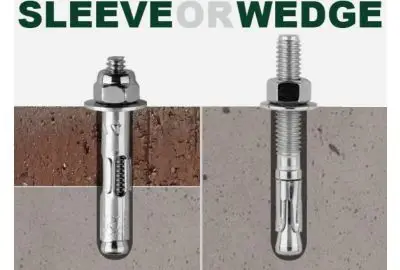1 2 x 10 anchor bolts factories
Dec . 06, 2024 22:18 Back to list
1 2 x 10 anchor bolts factories
The Importance and Applications of 1% 202% x 10 Anchor Bolts in Manufacturing
Anchor bolts are essential components used in construction and engineering applications, providing the necessary support to stabilize structures. Among various types of anchor bolts, those classified as 1% 202% x 10 have gained popularity in factories due to their unique attributes and capabilities. This article will delve into the specific characteristics, manufacturing processes, and applications of these anchor bolts in various industries.
Characteristics of 1% 202% x 10 Anchor Bolts
The designation 1% 202% x 10 refers to the specifications and dimensions of the anchor bolts. The percentage indicates the content of alloying materials, which influences the properties of the bolts. In this case, an alloy content of 1% lends increased strength and corrosion resistance to the bolts, which is critical in many applications where durability is paramount. The x 10 denotes the length or size of the bolt, which is typically designed to suit specific load requirements.
One of the standout characteristics of these anchor bolts is their high tensile strength and resistance to environmental factors such as moisture and chemicals. These properties are essential in ensuring that the anchored structures remain stable and secure over time, helping to prevent structural failures.
Manufacturing Processes
The production of 1% 202% x 10 anchor bolts involves several well-defined processes. Initially, high-quality raw materials are sourced, typically steel alloys that ensure optimal performance. The manufacturing process begins with melting the raw materials, followed by forging them into the desired shape.
After forging, the bolts undergo a heat treatment process, which enhances their strength and toughness. This is followed by surface treatment processes, such as galvanizing or coating, which provide additional protection against corrosion.
1 2 x 10 anchor bolts factories

Quality control is an integral part of the production process. Each batch of anchor bolts is subjected to rigorous testing to verify its strength, dimensional accuracy, and resistance to environmental factors. Only after passing these tests are the bolts deemed ready for distribution.
Applications in Various Industries
1% 202% x 10 anchor bolts find applications across various sectors, including construction, manufacturing, and infrastructure. In the construction industry, they are commonly used to secure structural steel frames, precast concrete components, and machinery bases, ensuring stability in high-rise buildings, bridges, and industrial facilities.
In manufacturing, these anchor bolts are essential for anchoring heavy equipment, ensuring that machines remain securely in place during operation. Their resistance to vibration and movement makes them ideal for use in factories where heavy machinery is continuously in use.
Moreover, the versatility of 1% 202% x 10 anchor bolts extends to the petrochemical and marine industries, where they are utilized to secure pipelines, tanks, and offshore structures. Their corrosion-resistant properties are particularly beneficial in these settings, as they are often exposed to harsh environments.
Conclusion
In conclusion, the 1% 202% x 10 anchor bolts play a pivotal role in maintaining the integrity and stability of structures across diverse industries. Their high strength, durability, and versatility make them an ideal choice for various applications, while the stringent manufacturing standards ensure that they meet the high demands of modern engineering projects. As industries continue to evolve, the development and use of advanced anchor bolts will remain a fundamental aspect of ensuring safety and functionality in construction and manufacturing. Whether in large construction projects or critical industrial applications, these anchor bolts contribute significantly to the resilience and reliability of our built environment.
Latest news
-
High-Quality Panel Stud Bolt Reliable Panel Stud Bolt Factory & Suppliers
NewsJul.08,2025
-
High-Precision Fine Thread Locknuts Manufacturer & Supplier Custom Solutions
NewsJul.08,2025
-
PH Imperial Stud Bolt – High Strength Fasteners from Leading Supplier & Factory
NewsJul.07,2025
-
High-Quality Allen Wrench Bolts Leading Factory, Company & Suppliers
NewsJul.07,2025
-
Wholesale Ball Stud Bolt - High Quality Supplier & Factory Price Reliable Wholesale Ball Stud Bolt Company
NewsJul.06,2025
-
High-Strength Alloy Bolts Manufacturer & Supplier Quality Alloy Fasteners Factory
NewsJul.06,2025
